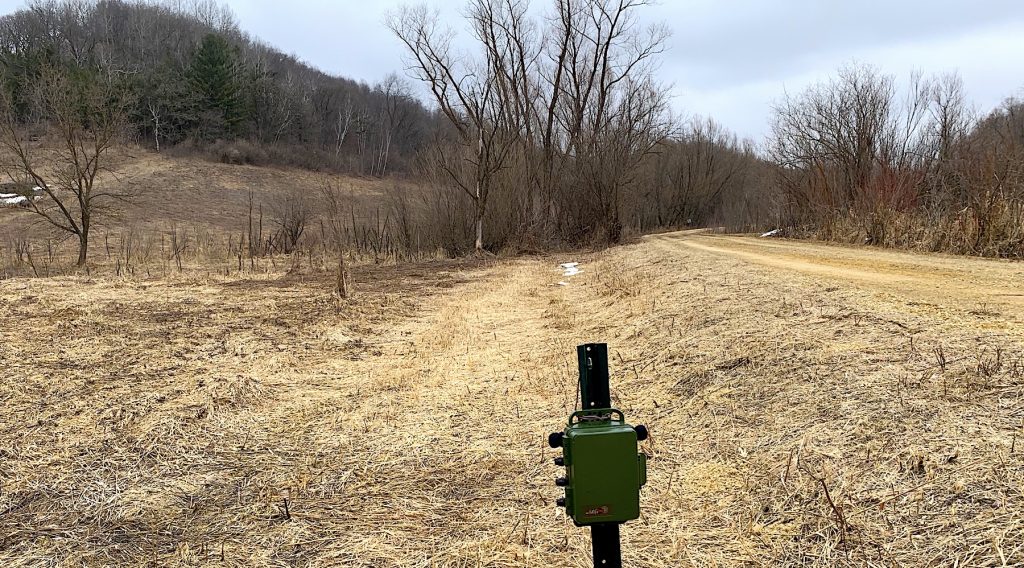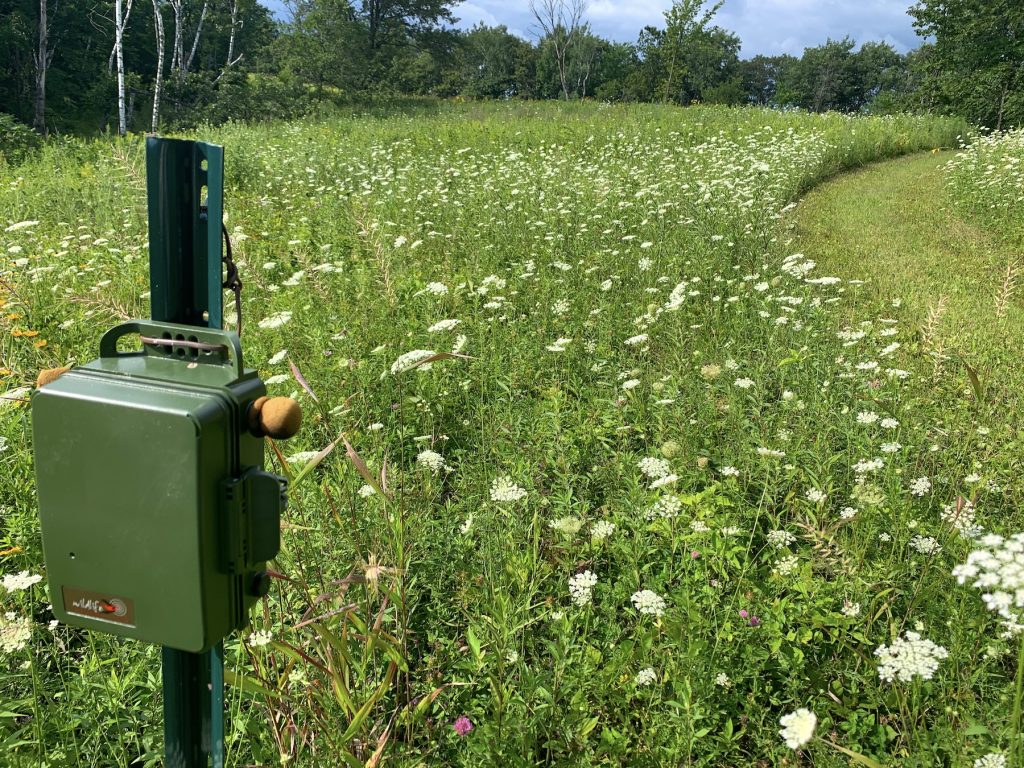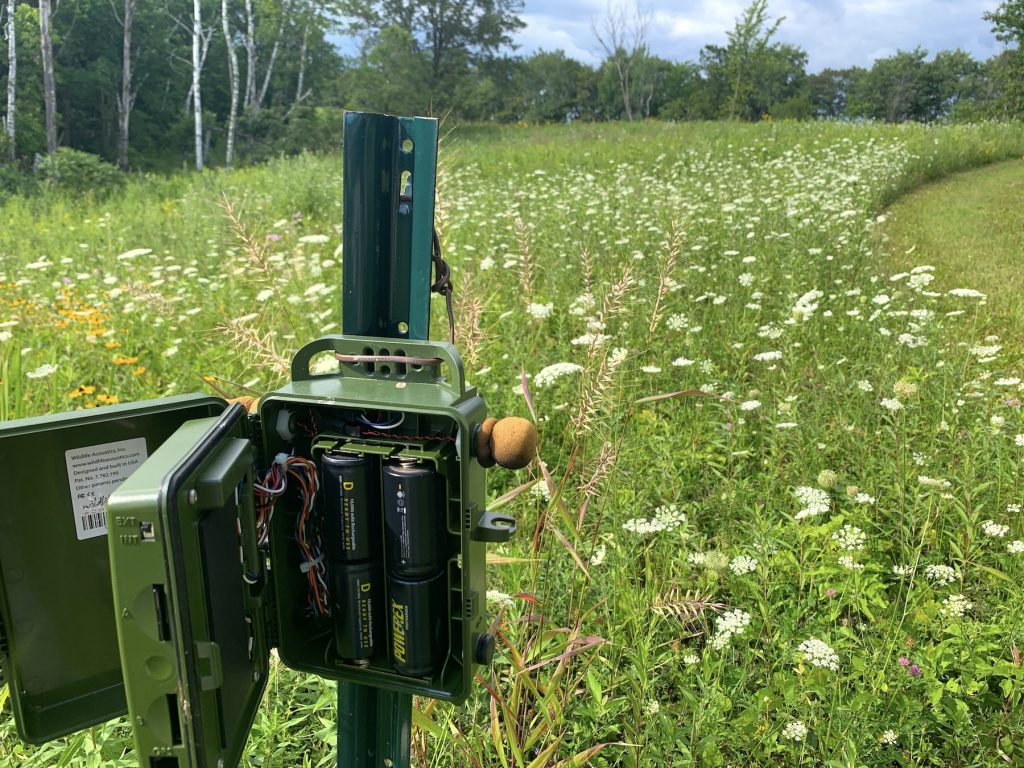Who?
We are Marcie and Mike O’Connor. We try to document our Prairie Haven Driftless Area habitat restoration project in as many dimensions as we can (photos, logs, journals, videos, etc.). We added this bioacoustic monitoring project to the portfolio in late 2019. Click here to contact us.
Why?
We hope to provide another resource for future comparisons and a useful data-set for researchers interested in studying the changes that result from our restoration effort.
We also hope that this project provides an example to others doing Driftless Area restorations if they decide to start collecting similar recordings of their own projects.
When?
The best time to start collecting bioacoustic recordings would have been the day we started our restoration project. The second-best time is “now!”
What?
We collect 35 hours of audio per day (the three hours surrounding both sunrise and sunset, plus an hour in the middle of the day, at five locations). The locations are a wetland, a savanna, a prairie, a wooded creek and one near our house). That setup and schedule produces about 8 terabytes of standard WAV audio files over the year.
We extract some snippets of that archive to use in our annual Seasons videos, but most of the files are archived in hopes that it will be useful to somebody, some day…
Here are a few examples of the audio we’ve collected. These are all “straight out of the recorder” with no editing except trimming and converting them to MP3 to reduce the size of the files.
Dawn at the house – an hour-long segment that starts with the sound of the peepers and slowly adds the birds as they awaken.
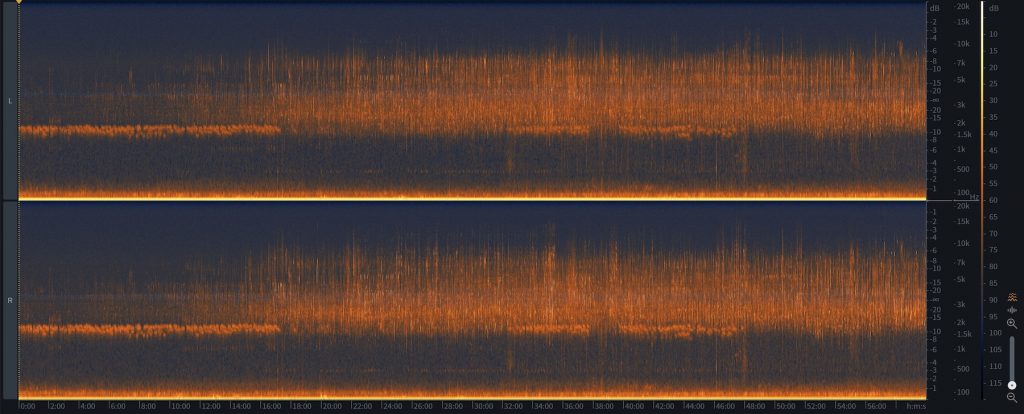
Coyotes – these critters had a nice little 1-minute chat about the state of affairs in Prairie Haven that night
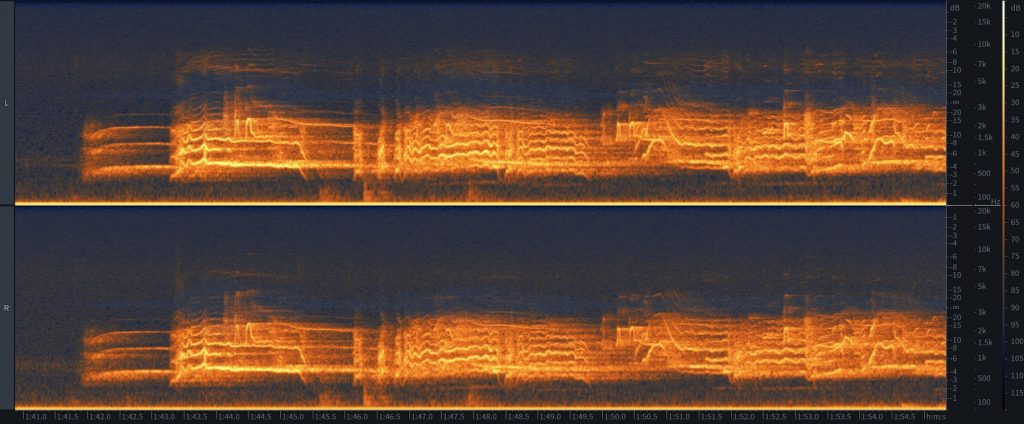
Whippoorwills – they come here very rarely, which is probably why we enjoy hearing them. They’re introduced by a distant Barred owl and a Woodcock doing his mating call. About 4 minutes long.
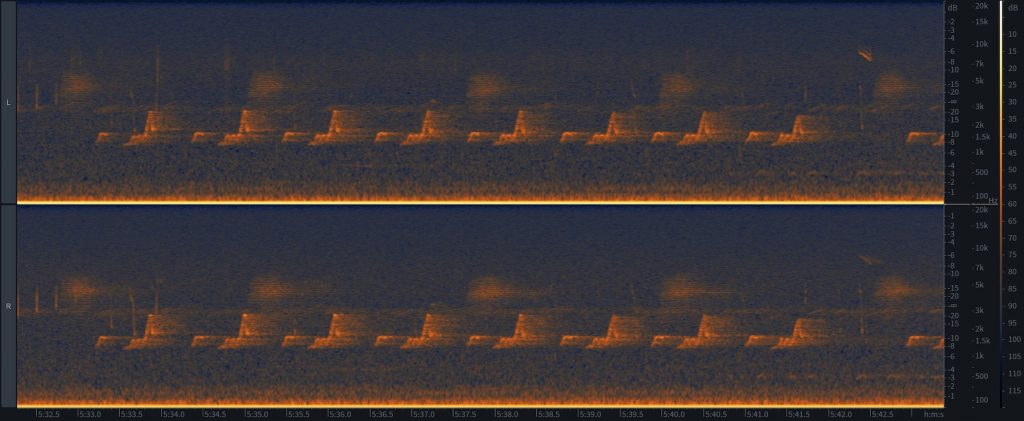
How?
We use Sound Meter 4 recorders from Wildlife Acoustics for this project. We like them because:
-
-
-
- They capture good sound with low noise
- They’ve weatherproof (like a game camera) so we can leave them outside in all sorts of weather, including the winter
- They run a really long time (like 2-4 weeks) on one set of four (rechargeable) D-cell batteries
- They can be scheduled to turn on and off throughout the day
-
-
Here is a page that summarizes the side-by-side test we ran of various rigs before we arrived at that decision.
We mount them on fence posts along the routes we take frequent walks. Every few weeks we swap the SD cards and batteries. The files on the SD cards get transferred to the archive and the batteries get recharged. That’s it — analysis and review comes later (if ever). The main goal right now is to collect the recordings.
Here are a few pictures of them in their native habitat. Note the sophisticated mounting technique.
We’d love to hear from you if you’d like to learn more, or have a similar project. Click here to contact us.

